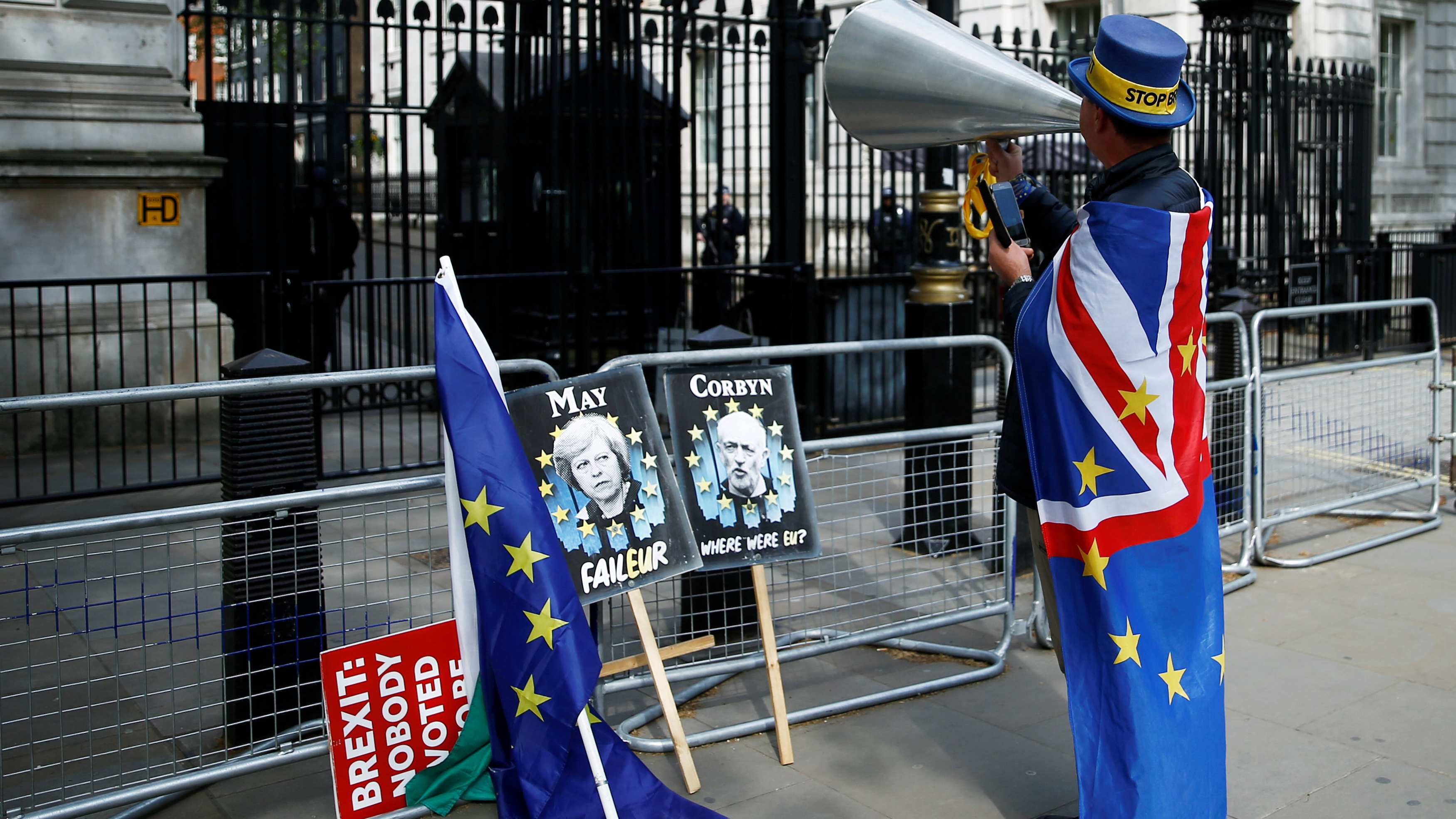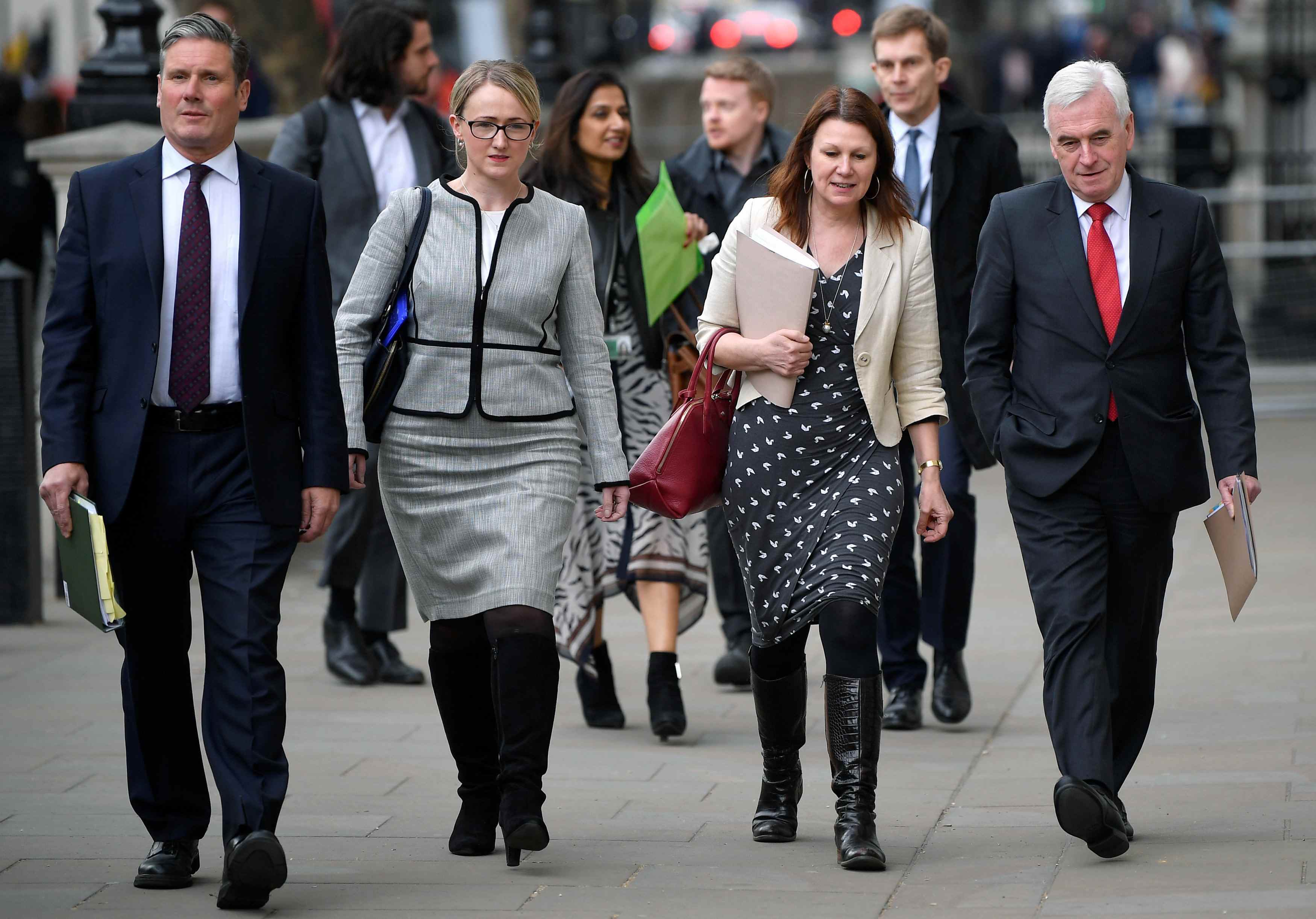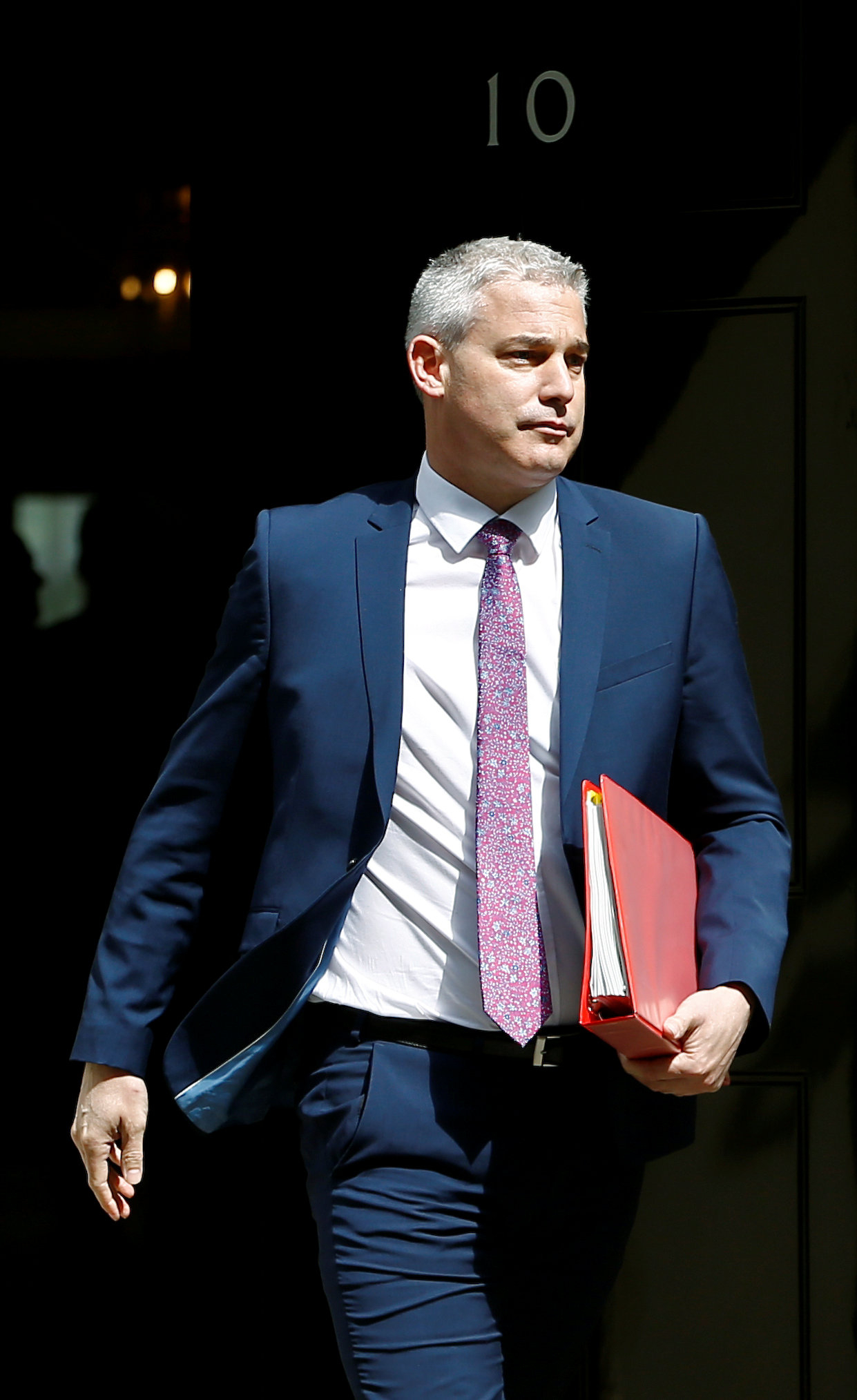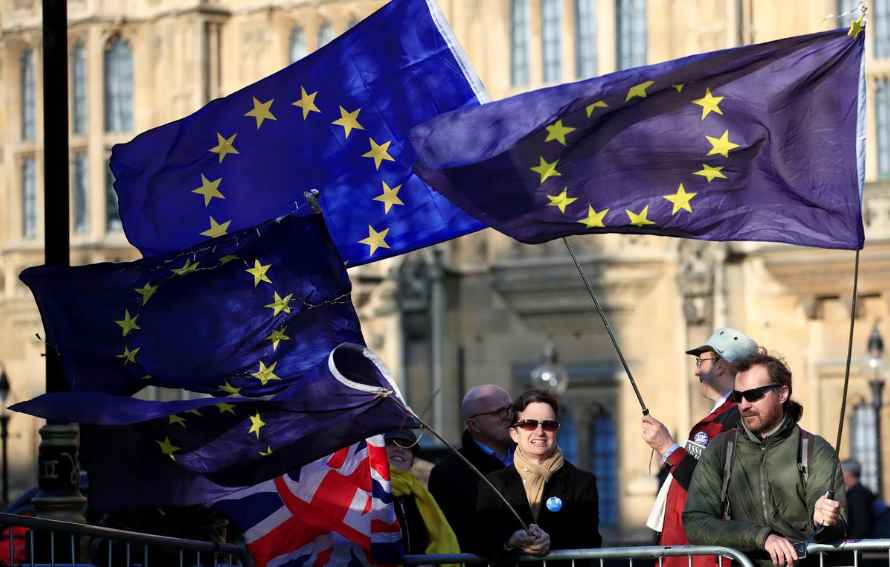
Europe
08:56, 08-May-2019
Conservatives resume Brexit talks with Labour amid low expectations
CGTN

The United Kingdom's Conservative government held what it called "constructive and detailed" talks with the opposition Labour Party on Tuesday as the two sides struggle to break a parliamentary deadlock over the country's exit from the European Union.
After Prime Minister Theresa May' deal was rejected three times in Parliament and she was forced to delay Brexit, the government has spent more than four weeks in talks with Labour – negotiations that have done little to soften positions in either party.
So far, there has been no agreement.
May's office said: "Today's meeting was constructive and detailed. The teams have agreed to meet again for follow-up talks tomorrow afternoon, recognizing the need to resolve the current Brexit deadlock in Parliament."

Britain's Shadow Chancellor of the Exchequer John McDonnell and Secretary of State for Departing the European Union Kier Starmer, of the Labour Party, arrive for cross-party Brexit talks at Cabinet Office in London, Britain, May 7, 2019. /Reuters Photo
Britain's Shadow Chancellor of the Exchequer John McDonnell and Secretary of State for Departing the European Union Kier Starmer, of the Labour Party, arrive for cross-party Brexit talks at Cabinet Office in London, Britain, May 7, 2019. /Reuters Photo
However, Labour's business spokeswoman Rebecca Long-Bailey said the government had not offered any new concessions.
"They haven't moved on any of their previous positions as yet," she told ITV News.
Almost three years after Britain voted to leave the EU, there is little clarity about how, when or even if Brexit will happen.
The government also conceded on Tuesday that Britain would take part in European Parliament elections this month, a poll that could deliver more bruising results to both major parties.
David Lidington, May's de facto deputy, said that despite the country taking part in the European elections on May 23, there was still time to avoid those elected taking their seats.
"Ideally we would like to be in a situation where those MEPs from the UK never actually take their seats in the European Parliament, certainly to get this done and dusted by the summer recess," he said, referring to Parliament's summer break that usually begins in the second half of July.
May deeply regretted the UK having to take part in the elections, her spokesman said, describing the prime minister as determined to find a way to get a deal to leave the EU over the line. The Labour talks are an attempt by May to find a new path to what she calls "a stable majority" for a deal.

Britain's Secretary of State for Exiting the European Union Stephen Barclay is seen outside Downing Street, as uncertainty over Brexit continues, in London, Britain, May 7, 2019. /Reuters Photo
Britain's Secretary of State for Exiting the European Union Stephen Barclay is seen outside Downing Street, as uncertainty over Brexit continues, in London, Britain, May 7, 2019. /Reuters Photo
Earlier, May told her cabinet that last week's local elections, when the Conservatives lost hundreds of council seats, underlined the need to get on with Brexit.
"The prime minister said that while an agreement with the opposition had not been reached, the public had sent a clear message in the local elections that they want both of the main parties to get on with delivering Brexit," her spokesman said she told ministers.
However, many pro-EU lawmakers used the election results to argue the tide is turning against Brexit after the Liberal Democrats, who oppose Brexit and want a second referendum, gained many council seats.
Taking part in the European elections is a further blow to May, who secured a divorce deal with the EU in November but has been unable to implement the agreement and faces growing calls to bring forward her decision to stand down as prime minister.
She was to meet the chairman of the Conservative 1922 Committee, an influential party group that can make or break Conservative Party leaders, on Tuesday.
A spokesman described it as a regular meeting, though some newspapers reported that its chairman, Graham Brady, would demand a firm timetable for her departure.
Like the Conservatives, the Labour Party fears voters will again punish them and vote for alternative parties that have a clearer stance on Brexit.
Conservative Brexit supporters might flock to the newly launched Brexit Party of former UKIP leader Nigel Farage.

Anti-Brexit protesters hold EU flags as they demonstrate outside the Houses of Parliament, as uncertainty over Brexit continues, in London, Britain, April 11, 2019. /Reuters Photo
Anti-Brexit protesters hold EU flags as they demonstrate outside the Houses of Parliament, as uncertainty over Brexit continues, in London, Britain, April 11, 2019. /Reuters Photo
Pro-EU Labour voters could turn to Change UK, another new party, or support the Liberal Democrats.
But with both major parties, like much of the country, deeply divided over Brexit, any breakthrough from the current round of talks might be hard to come by.
Labour sources were dismissive of weekend reports the government would offer new concessions, including a temporary customs union with the EU until a national election due in June 2022, saying such a proposal would not go far enough.
That offer was quickly played down by Foreign Secretary Jeremy Hunt, who said he did not believe a post-Brexit customs union would offer a sustainable long-term solution.
"I want to look at whatever deal is come to between the parties and I know this is a crucial week," he told BBC radio.
(Cover: Anti-Brexit protester Steve Bray demonstrates outside the gates of Downing Street, as uncertainty over Brexit continues, in London, Britain, May 7, 2019. /Reuters Photo)
Source(s): Reuters

SITEMAP
Copyright © 2018 CGTN. Beijing ICP prepared NO.16065310-3
Copyright © 2018 CGTN. Beijing ICP prepared NO.16065310-3